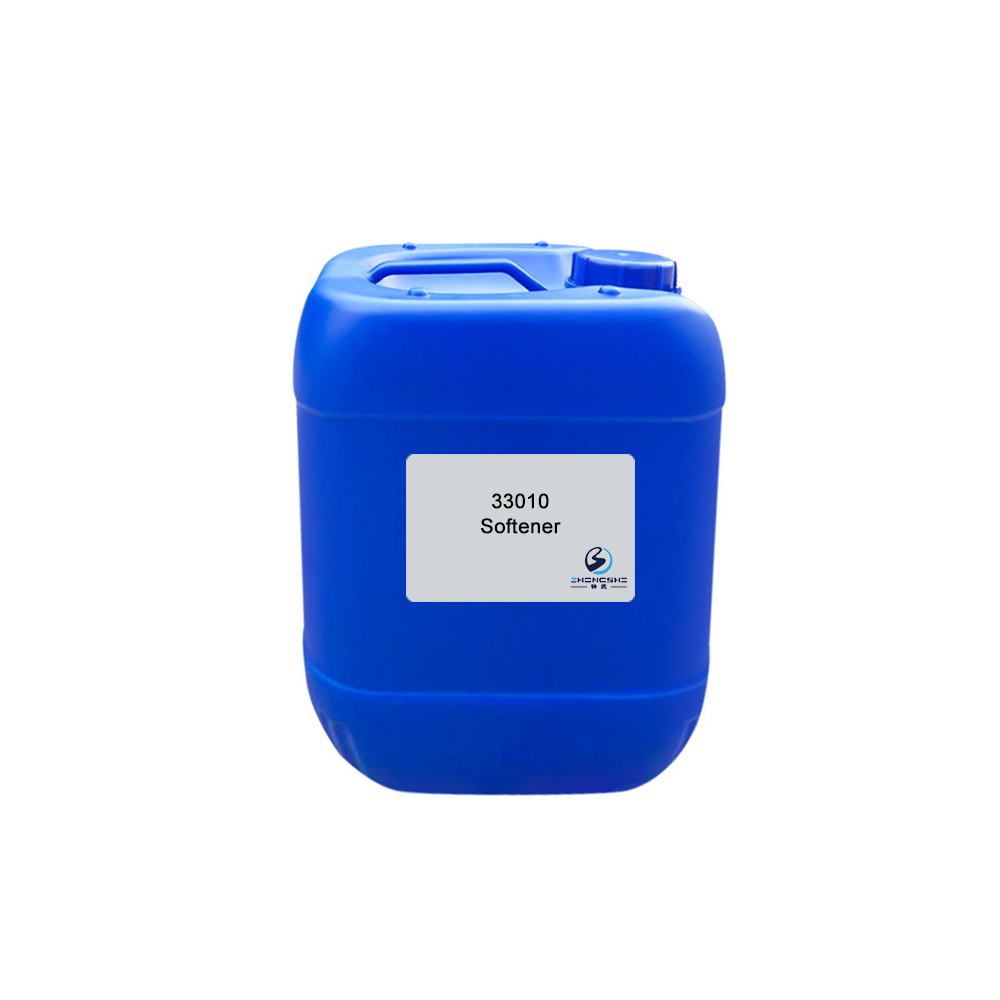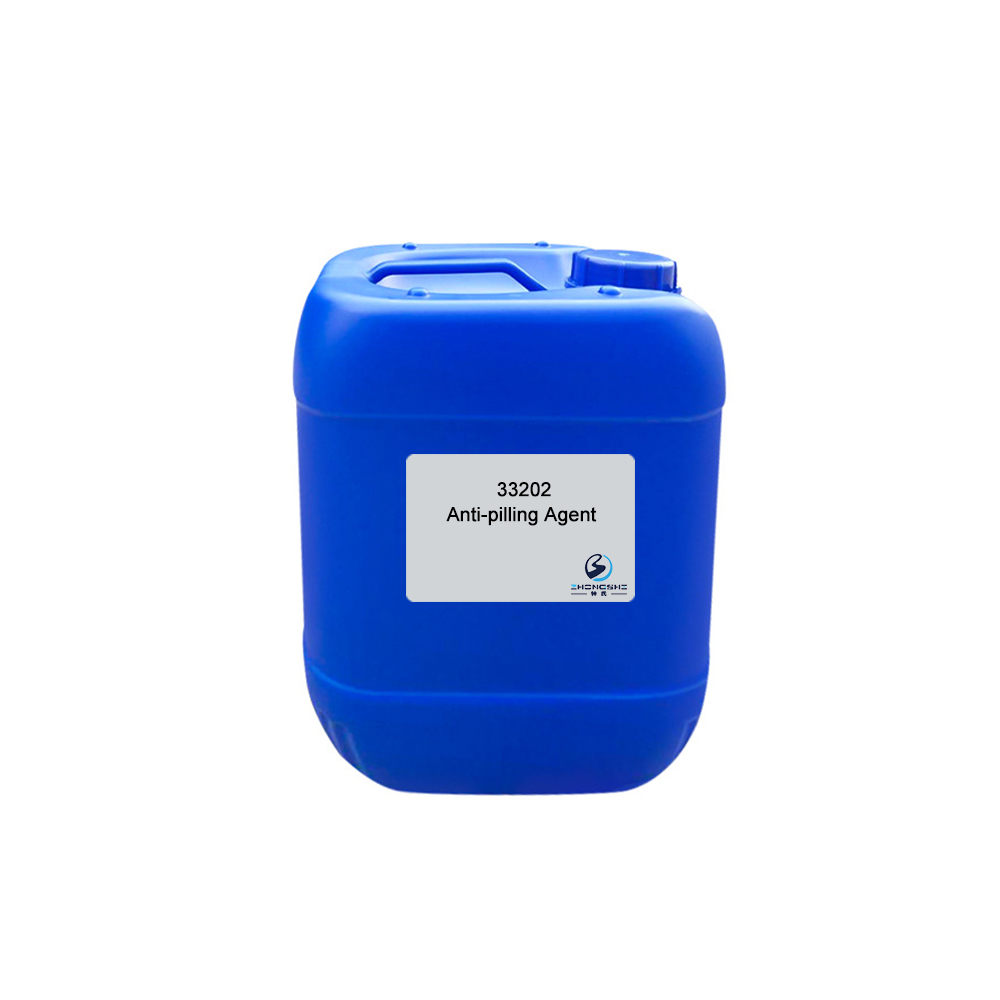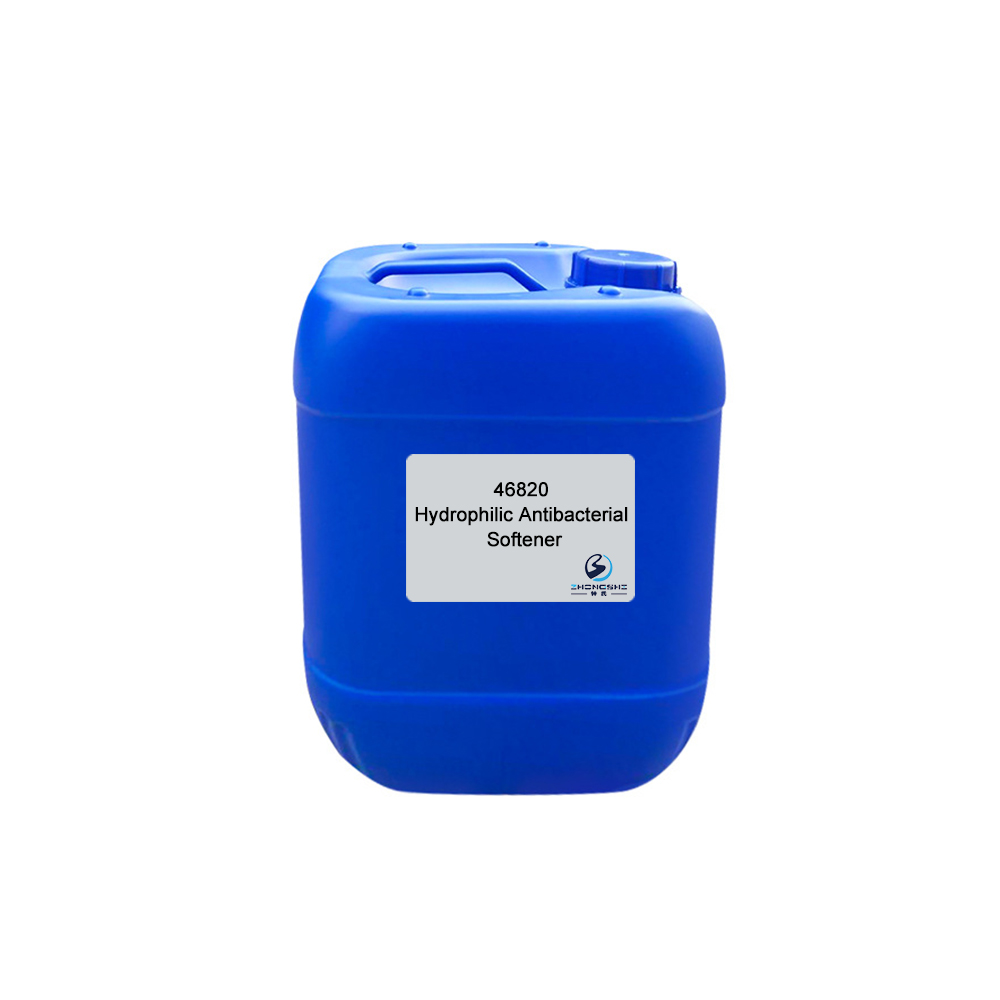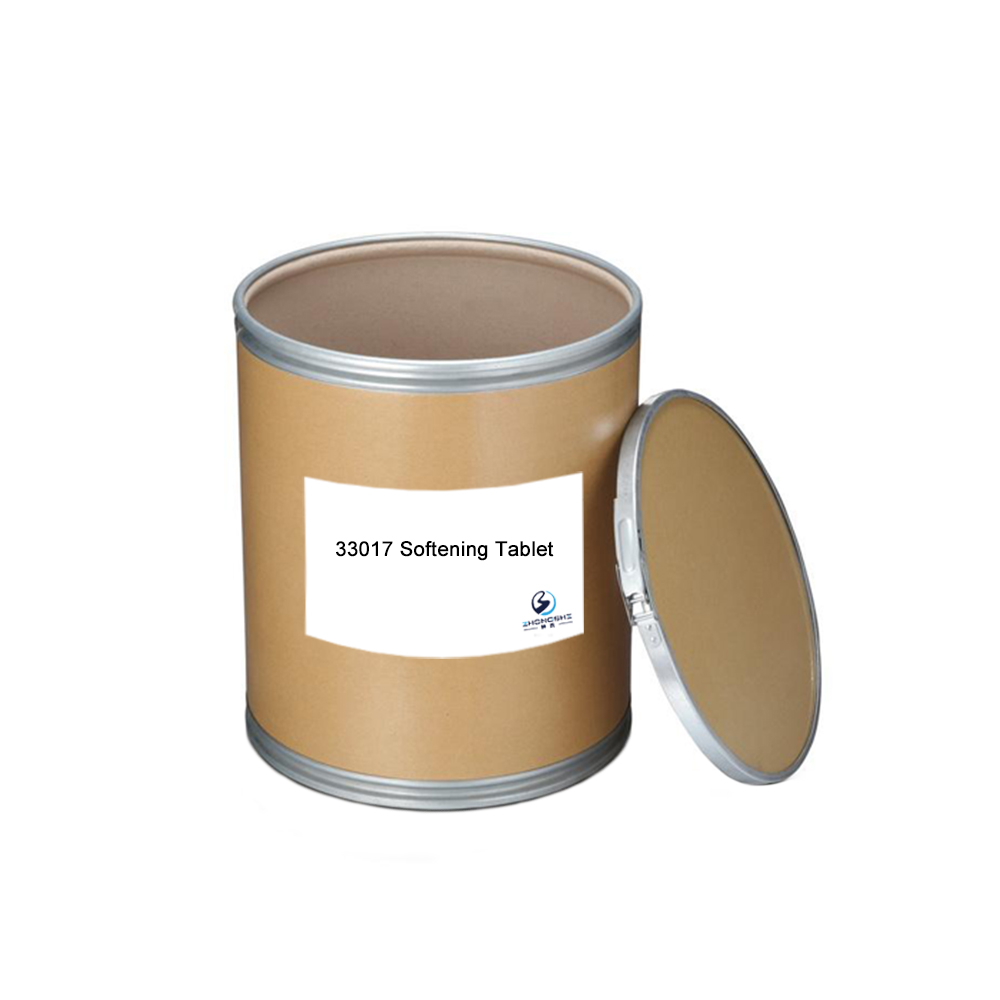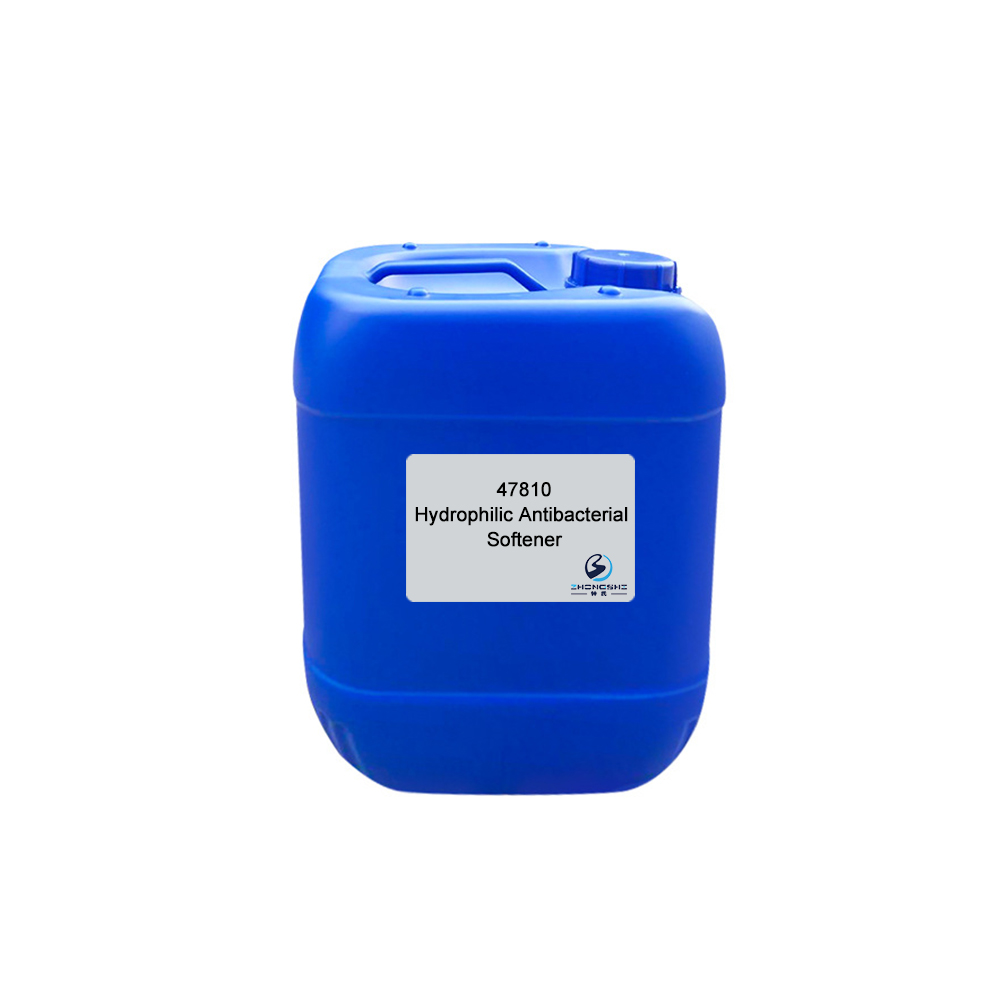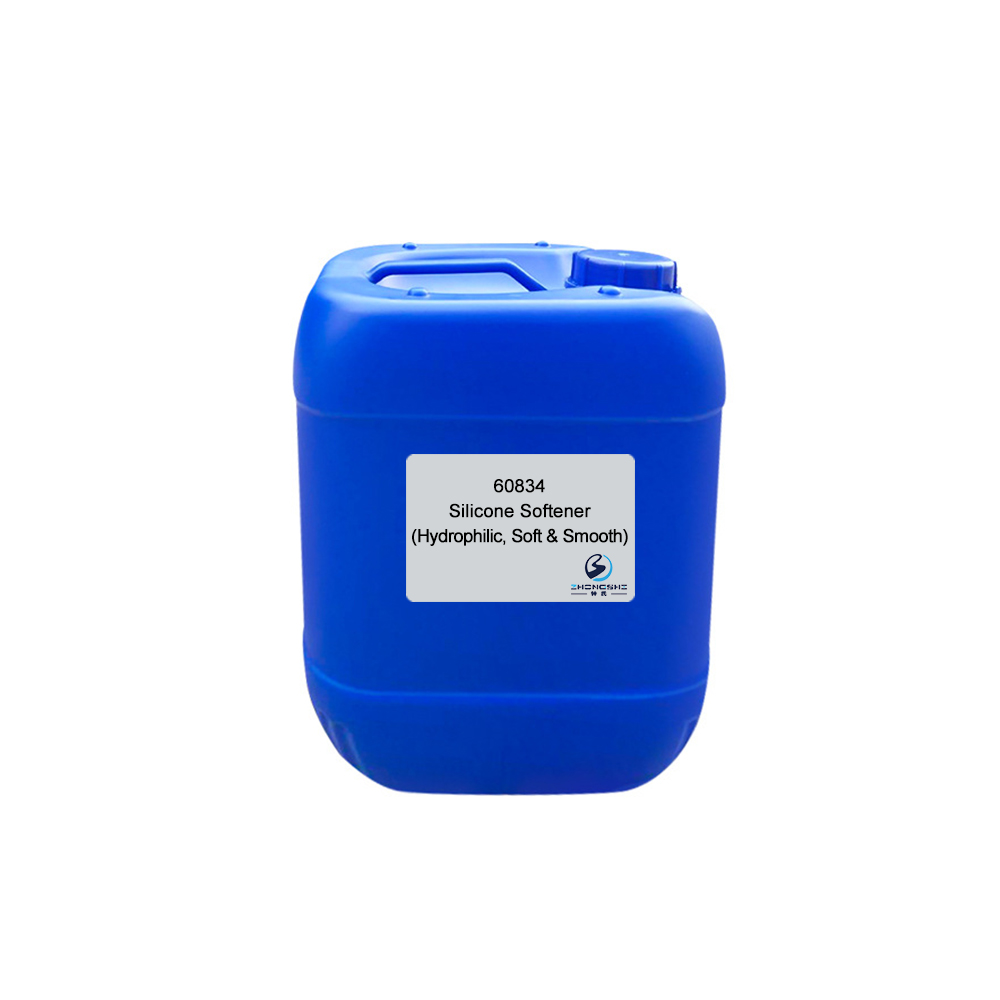Factory Cheap Finishing Fixing Agent - 43513 Anti Heat Yellowing Agent – Innovative
Factory Cheap Finishing Fixing Agent - 43513 Anti Heat Yellowing Agent – Innovative Detail:
Features & Benefits
- Contains no ADH. Does not absorb formaldehyde.
- Excellent property of resistance to high temperature oxidation and yellowing.
Typical Properties
| Appearance: | Colorless to light yellow transparent liquid |
| Ionicity: | Nonionic |
| pH value: | 7.5±1.0 (1% aqueous solution) |
| Solubility: | Soluble in water |
| Application: | Nylon, spandex and nylon/ spandex, etc. |
Package
120kg plastic barrel, IBC tank & customized package available for selection
TIPS:
Antishrink finishing
Cotton fabric is very popular choice for manufacturing apparel for various reasons: it is durable and can withstand a rough laundering treatment, especially under alkaline conditions; it has good perspiration and absorption characteristics; it is comfortable to wear; and it is able to take on a wide range of dyes. But the main problem with cotton fabric is shrinkage during washing or laundering. Shrinkage is an undesirable property of apparel, so in order to manufacture high-quality clothing, shrink-resistant fabric should be used.
However, there are fabrics which are more naturally resistant to shrinking. Synthetic fibers such as polyester or nylon are typically less prone to shrinking than others, although they are not 100% shrink-proof. It helps if they are washed and preshrunk, which helps further boost their resistance to future shrinking. The more synthetic fibers there are in a garment, the less likely it is to shrink.
Cellulosic fibers are not as easily stabilized as thermoplastic synthetics, because they cannot be heatset to attain stability. Also, synthetic fibers do not exhibit the swelling/deswelling scenario that cotton exhibits. However, the comfort and overall appeal of cotton has resulted in a greater demand for dimensional stability by both the consumer and the textile industry. The relaxation of fabrics made with cotton fibers, therefore, requires either mechanical and/or chemical means for stabilization.
Much of a fabric’s residual shrinkage is the result of the tension applied to the fabric during wet processing. Some woven fabrics will shrink both in width and length during preparation and dyeing. These fabrics must be pulled out in order to maintain width and yardage yields, and the stress causes residual shrinkage. Knit fabrics are inherently wrinkle resistant; however, some are pulled out to a width wider than the fabric’s knitted gauge, which also adds to residual shrinkage. Much of the stress-induced shrinkage can be eliminated by mechanically compacting the fabric. Compacting will result in reduced yardage yields, and cross-linking also reduces fabric shrinkage. A good resin finish will stabilize the fabric and reduce the residual shrinkage to less than 2%. The degree of stabilization required by chemical finishes will depend on the fabric’s previous history.
Product detail pictures:
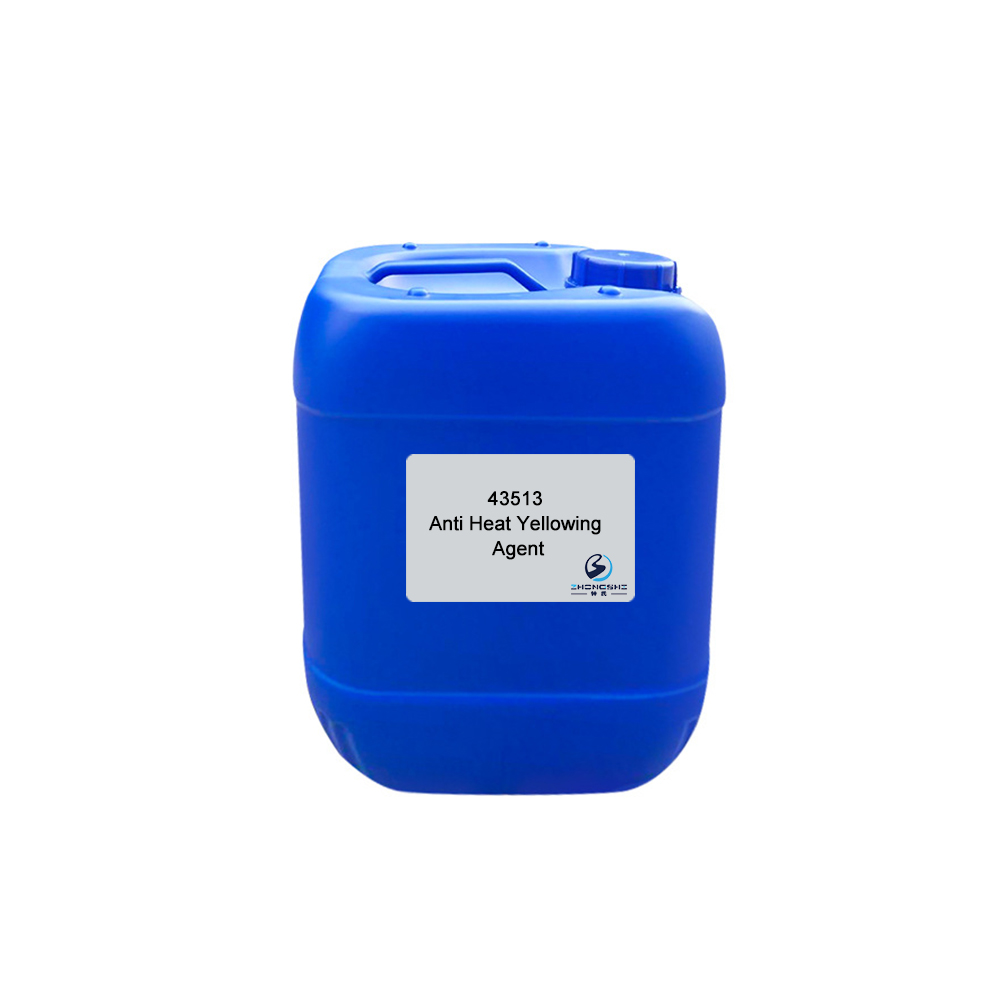
Related Product Guide:
Soaping agent is used to remove the unfixed dyes and hydrolytic dyes on fabrics and prevent color spots on fabrics, which improves the product quality. Factory Cheap Finishing Fixing Agent - 43513 Anti Heat Yellowing Agent – Innovative , The product will supply to all over the world, such as: Latvia, South Africa, Lesotho, Silicone Softener 70708 is suitable for fabrics of synthetic fibers, as acrylic, cotton/ acrylic, viscose fibers/ acrylic, polyester and nylon, etc. It is especially suitable for acrylic fibers. It can impart fabrics soft, smooth and plump handle. Also it can make yarns elastic and smooth. Silicone Softener 70708 is light yellowing transparent silicone emulsion. It is weak cationic. It is highly stable. During use, there will be no roll banding, sticking to equipment, oil floating or demulsification as traditional silicone oil.
We are really happy to find such a manufacturer that ensuring product quality at the same time the price is very cheap.


